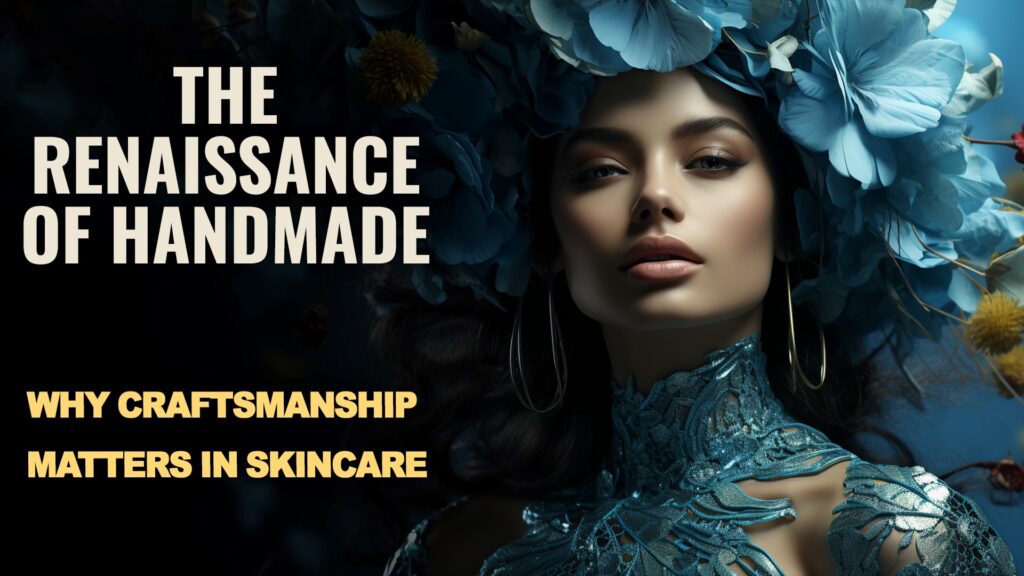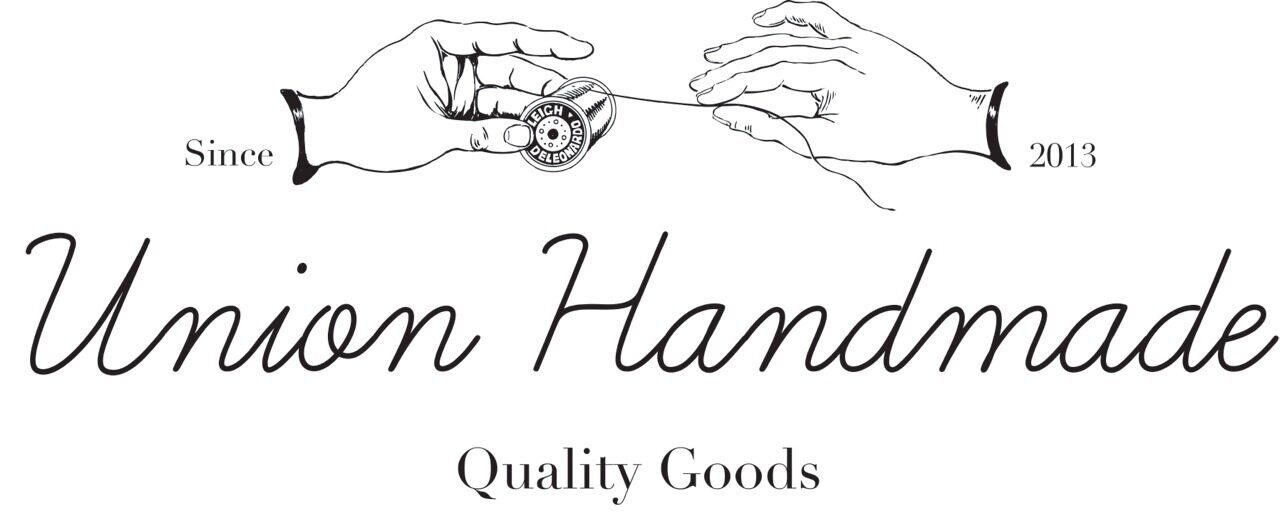
The Renaissance of Handmade: Why Craftsmanship Matters in Skincare
In a world inundated with mass-produced goods and automated services, the art of craftsmanship in skincare is experiencing a revival. As we navigate the complexities of modern life, there is a growing appreciation for the personal touch and thoughtful attention to detail that comes with handcrafted products. The essence of handmade skincare lies not only in its ability to nourish and rejuvenate but also in its celebration of traditional techniques, ethical production, and artisanal values. This resurgence is not a fleeting trend but a movement towards embracing practices that benefit our skin and the environment.
The Allure of the Artisanal Approach
Personal touch In an artisan’s studio, each skincare product is a testament to the maker’s dedication. Here, the connection between creator and consumer is intimate; a narrative of trust and care is woven into every product. Unlike off-the-shelf items, handmade skincare offers the possibility for customization. Consumers with specific needs can find solace in tailored products, knowing that an artisan has mixed each ingredient with a particular purpose.
Skincare personalization goes beyond simply selecting a scent or skin type—it allows for a symbiotic relationship between the producer and the user. It’s a dialogue where feedback and experiences are shared, leading to products that evolve and improve over time, guided by the real-world results seen by their users.
Quality of Ingredients The backbone of any skincare product is its ingredients. Artisans often go to great lengths to source high-quality, potent ingredients that commercial producers might need to pay more attention to due to cost or sourcing difficulties. Locally sourced ingredients not only support the regional economy but also offer a freshness that can be lost in the lengthy transit of global supply chains.
The debate of organic versus commercially farmed ingredients often centers on the purity and potency of the skincare products. Organic farming eschews pesticides and synthetic fertilizers, promoting a natural growing process that can result in ingredients with higher levels of beneficial antioxidants and nutrients. The impact of these choices is palpable on the skin, where the gentle, nourishing properties of organic ingredients can truly shine.
Craftsmanship Versus Mass Production
Process Over Machines In handmade skincare, traditional methods are cherished. Artisans engage in practices honed over generations, often in small batches that ensure attention to detail. These techniques, whether cold-pressing oils or infusing herbs are respected for their ability to retain the integrity and therapeutic properties of natural ingredients.
Small-batch production also enables artisans to be nimble, adapting to feedback and customizing formulations without the constraints of large-scale manufacturing. This adaptability ensures quality and freshness that machines churning out products by the thousands cannot match. Case studies from around the globe bear witness to the success of this approach, with many small-scale producers growing loyal followings that appreciate the unique qualities of handmade goods.
Ethical Considerations Regarding ethics, the transparency of handmade skincare is a breath of fresh air. Artisans are often passionate advocates for fair trade, ethical sourcing, and giving back to the community. By supporting local suppliers and engaging in direct trade, they ensure that profits are fairly distributed, contributing to the sustainability of local economies.
Furthermore, the environmental impact of skincare is significantly lessened when produced by hand. Artisans tend to be environmentally conscious, reducing waste, avoiding harmful chemicals, and using biodegradable packaging. The cumulative effect of these practices represents a responsible approach to beauty that benefits both people and the planet.The Health and Beauty Benefits of Handcrafted Skincare

Potency and Efficacy: The hallmark of handcrafted skincare is the potency of its formulations. Small batches mean products can be sold and used when they are most effective, without the need for heavy preservatives that can irritate the skin and dilute the benefits. Freshly made serums, creams, and balms can deliver the full power of their active ingredients directly to the skin, where they can do the most good.
The balance and synergy of ingredients in handcrafted skincare are also of note. Artisans can carefully adjust formulas to maximize the benefits of each component, creating harmonious blends that support skin health. This thoughtful formulation can lead to visible improvements in skin texture, tone, and overall health.
Purity and Hypoallergenic Qualities Simplicity is at the heart of handcrafted skincare. With fewer ingredients, typically of a higher quality and in more concentrated forms, these products are often purer and more hypoallergenic than their mass-produced counterparts. This makes them particularly suitable for those with sensitive skin or allergies, as there are fewer components to react to potentially.
The stories of transformation associated with handmade skincare are not uncommon. From chronic skin conditions soothed to everyday concerns like dryness and aging gracefully addressed, the evidence is in the glowing complexions of those who have switched to handcrafted products.
The Economic and Social Impact of Choosing Handmade
Boosting Local Economies When consumers choose artisanal skincare, they’re not just purchasing a product; they’re investing in their community. Small-scale production often means that money spent on these goods circulates within local economies, creating jobs and supporting the infrastructure of small towns and cities.
Supporting Tradition and Innovation The choice to buy handcrafted skincare also upholds traditional methods and encourages innovation. Artisans are often custodians of heritage techniques passed down through generations. By supporting their craft, consumers help to keep these skills alive and relevant in the modern age. At the same time, these small-scale producers are at the forefront of innovation in skincare, unencumbered by the bureaucracy that can stifle creativity in larger companies. They are free to experiment with new combinations of ingredients, sustainable packaging solutions, and unique production methods.
The Sociocultural Aspect Handcrafted skincare is also about people. It’s about the artisans who pour their heart and soul into their creations and the communities around these small businesses. These communities foster a sense of belonging and a shared mission to promote healthier, more sustainable living. They also serve as platforms for education on skincare, environmental issues, and the impact of consumer choices, further strengthening the bond between maker and consumer.
Sustainability and Environmental Stewardship
Eco-Friendly Practices Handmade skincare producers are typically at the forefront of eco-friendly practices. They tend to have a heightened awareness of the lifecycle of their products, from the sourcing of raw materials to the disposal of the final package. Renewable resources, such as solar and wind power, are often used in the production process, reducing the carbon footprint. The reduction in transportation, both in sourcing local ingredients and in selling primarily to local customers or online, further diminishes the environmental impact.
Biodegradable and Recyclable Packaging The packaging is an integral part of the product in the handmade skincare industry. Artisans often opt for biodegradable or recyclable materials that align with the ethos of their brands. Glass jars, metal tins, and compostable wrappers are familiar sights in the realm of artisanal skincare, a stark contrast to the plastic-heavy packaging of many commercial brands. These choices not only appeal to the environmentally conscious consumer but also contribute to a reduction in the pollution that is plaguing our planet.
Handmade Is Heartmade: The Emotional Connection
Building Relationships Handcrafted skincare is not a mere transaction; it’s an exchange that builds relationships. Customers often have direct access to the artisans, fostering a connection that is rare in the impersonal marketplace of today. This rapport brings with it trust, loyalty, and a genuine interest in the success of the artisan. Customers become advocates for the brand, driven by the personal stories and the people behind the products.
Emotional Well-being There is also a wellness aspect to using handcrafted skincare. Applying a cream or oil lovingly made by hand can be a grounding, comforting experience. It’s a daily ritual that connects the user to the natural world and to the human hands that crafted the product. This connection can be a source of solace and joy in the fast-paced digital age, an anchor to the tactile and the real.The Future of Handcrafted Skincare: Trends and Predictions

Innovation in the Craft: The future of handcrafted skincare looks bright as artisans innovate. Discoveries in natural preservatives, sustainable sources of rare ingredients, and advancements in eco-friendly packaging are on the horizon. The handmade skincare market is poised for growth as consumers increasingly seek products that align with their values and lifestyles.
The Role of Technology While handcrafted skincare honors traditional methods, it also benefits from modern technology. E-commerce platforms, social media, and other digital tools have made it easier for artisans to reach a global audience, share their stories, and educate consumers about the benefits of handmade products. This blend of the old and the new creates a dynamic space where traditions are preserved and innovation is embraced.
Conclusion
The renaissance of handmade skincare is more than a trend; it reflects a collective desire for authenticity, quality, and sustainability. It’s about recognizing the value of the human touch in a world that’s becoming increasingly automated. When we choose handcrafted skincare, we’re supporting local economies, sustaining traditional crafts, advocating for ethical practices, and taking a stand for the environment. Perhaps most importantly, we care for ourselves in the most natural and nurturing way possible. Handcrafted skincare isn’t just good for the skin; it’s good for the soul.
